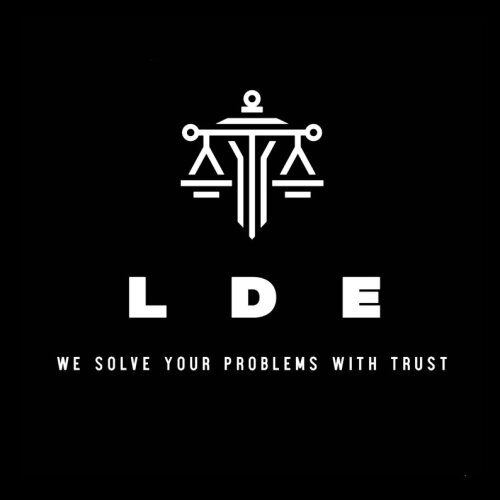Best Energy, Environment & ESG Lawyers in Islamabad
Share your needs with us, get contacted by law firms.
Free. Takes 2 min.
List of the best lawyers in Islamabad, Pakistan
About Energy, Environment & ESG Law in Islamabad, Pakistan
Energy, Environment & ESG (Environmental, Social, and Governance) law is a dynamic and rapidly evolving area in Islamabad, Pakistan. Islamabad, being the federal capital, is home to government bodies and regulatory agencies that oversee legal compliance in these critical sectors. Energy law deals with policies and regulations around the generation, distribution, and consumption of energy, including oil, gas, electricity, and renewable resources. Environmental law covers statutes and regulations aimed at protecting the environment, ensuring sustainable development, and controlling pollution. ESG encompasses laws and standards for corporate social responsibility, environmental protection, workplace diversity, governance structures, anti-corruption, and more. These laws are influenced by both local governance and international obligations, reflecting Pakistan’s commitment to sustainable development and responsible corporate behavior.
Why You May Need a Lawyer
There are many situations where expert legal advice is valuable in energy, environment, and ESG matters. Companies and individuals in Islamabad often require a lawyer’s help for navigating complex compliance requirements, obtaining environmental permits, addressing allegations of environmental violations, or negotiating energy contracts. If your business is facing regulatory investigations, planning new facilities, or implementing ESG initiatives, an experienced lawyer can help ensure your projects align with all relevant laws. A lawyer is also indispensable in case of disputes, litigation, penalties, or negotiations with regulatory authorities or community stakeholders. Legal counsel can also help organizations design and implement effective ESG frameworks, draft corporate policies, and ensure transparent disclosures.
Local Laws Overview
Several key laws, policies, and regulatory bodies govern energy, environmental, and ESG matters in Islamabad:
- The National Electric Power Regulatory Authority (NEPRA) regulates electricity generation, transmission, and distribution, including licensing and tariffs. - The Oil and Gas Regulatory Authority (OGRA) oversees oil and gas operations, licenses, and safety standards. - The Pakistan Environmental Protection Act, 1997 (PEPA) mandates environmental clearances, environmental impact assessments (EIA), and compliance standards for pollution control. - The Pakistan Climate Change Act, 2017 sets guidelines for adaptation and mitigation against climate change, establishing the Pakistan Climate Change Council. - Local bylaws and zoning regulations affect where energy facilities or environmentally sensitive operations can be established. - Corporate entities are increasingly expected to follow ESG-related practices, with public reporting and stakeholder engagement being promoted. - Islamabad Environmental Protection Agency (EPA) is responsible for enforcing environmental standards and responding to complaints within the Islamabad Capital Territory. Understanding and complying with these frameworks is critical to avoid penalties, delays, or negative public attention.
Frequently Asked Questions
What is ESG and why is it relevant to businesses in Islamabad?
ESG stands for Environmental, Social, and Governance. It refers to practices that promote sustainability, ethical behavior, transparency, and social responsibility. In Islamabad, businesses are increasingly expected to align with ESG standards to attract investment, comply with regulations, and build trust with stakeholders.
Which authority issues environmental permits in Islamabad?
The Islamabad Environmental Protection Agency (EPA) is primarily responsible for issuing environmental permits and evaluating Environmental Impact Assessments for projects in Islamabad.
What kinds of projects need an Environmental Impact Assessment (EIA) in Islamabad?
Major infrastructure, industrial, and commercial projects that may have significant effects on the environment typically require EIAs. Examples include power plants, factories, housing schemes, and large-scale construction activities.
Can individuals report environmental violations in Islamabad?
Yes, individuals can report violations to the Islamabad EPA. The agency is empowered to investigate complaints relating to pollution, illegal dumping, emissions, and other environmental infractions.
What role does NEPRA play in the energy sector?
NEPRA regulates the electricity sector, including licensing, tariffs, standards for service, and dispute resolution among power producers, distributors, and consumers in Islamabad and throughout Pakistan.
Are there penalties for violating environmental regulations in Islamabad?
Yes, both individuals and organizations can face fines, suspension of operations, and even criminal charges under the Pakistan Environmental Protection Act if found in violation of environmental standards or permit requirements.
What is the significance of climate change laws for businesses?
Climate change laws require companies to assess and reduce their environmental impacts, implement mitigation or adaptation strategies, and report on climate-related risks. Businesses must also comply with sector-specific emission limits and participate in environmental programs.
How does OGRA regulate the oil and gas industry?
OGRA oversees licensing, safety, technical standards, pricing, and dispute resolution in the oil and gas sector. Its regulations aim to promote transparency, safety, and fair competition.
Is ESG reporting mandatory in Pakistan?
While ESG reporting is not yet mandatory for all companies, it is strongly encouraged, especially for publicly listed entities. There is a growing expectation for voluntary disclosure of ESG practices, and legal frameworks are evolving to potentially make such reporting mandatory in the future.
How can a lawyer help with ESG compliance?
A lawyer can help draft or review ESG policies, guide companies through compliance with relevant standards, assist with ESG reporting, address allegations of non-compliance, and develop strategies for risk mitigation and stakeholder engagement.
Additional Resources
Here are some valuable resources and organizations related to energy, environment, and ESG in Islamabad:
- Islamabad Environmental Protection Agency (EPA): Responsible for enforcing environmental laws within the Islamabad Capital Territory. - National Electric Power Regulatory Authority (NEPRA): Regulatory authority for Pakistan’s electricity sector. - Oil and Gas Regulatory Authority (OGRA): Regulates oil and gas operations and pricing. - Pakistan Environmental Protection Agency (Pak-EPA): National body for environmental policy and regulation. - Securities & Exchange Commission of Pakistan (SECP): Oversees corporate governance and is helping drive ESG policies in listed companies. - Pakistan Climate Change Council: Advises on national climate policy and implementation.
Next Steps
If you believe you need legal assistance in the field of Energy, Environment & ESG in Islamabad, consider the following steps:
- Collect relevant documents such as permits, correspondence from regulators, contracts, and any notices or orders received. - Assess the urgency and nature of your legal issue - whether it relates to compliance, negotiations, permitting, litigation, or policy development. - Consult a specialist lawyer with experience in energy, environment, or ESG matters. Prepare a summary of your issue and specific questions you want addressed. - Schedule a meeting to discuss your options, potential risks, deadlines, and legal strategies. - Stay informed about changes in laws and regulations that may impact your obligations in these sectors. Seeking early legal advice can help prevent costly mistakes, ensure compliance, and safeguard your interests in Islamabad’s dynamic regulatory environment.
Lawzana helps you find the best lawyers and law firms in Islamabad through a curated and pre-screened list of qualified legal professionals. Our platform offers rankings and detailed profiles of attorneys and law firms, allowing you to compare based on practice areas, including Energy, Environment & ESG, experience, and client feedback.
Each profile includes a description of the firm's areas of practice, client reviews, team members and partners, year of establishment, spoken languages, office locations, contact information, social media presence, and any published articles or resources. Most firms on our platform speak English and are experienced in both local and international legal matters.
Get a quote from top-rated law firms in Islamabad, Pakistan — quickly, securely, and without unnecessary hassle.
Disclaimer:
The information provided on this page is for general informational purposes only and does not constitute legal advice. While we strive to ensure the accuracy and relevance of the content, legal information may change over time, and interpretations of the law can vary. You should always consult with a qualified legal professional for advice specific to your situation.
We disclaim all liability for actions taken or not taken based on the content of this page. If you believe any information is incorrect or outdated, please contact us, and we will review and update it where appropriate.
Browse energy, environment & esg law firms by service in Islamabad, Pakistan
Islamabad, Pakistan Attorneys in related practice areas.

















